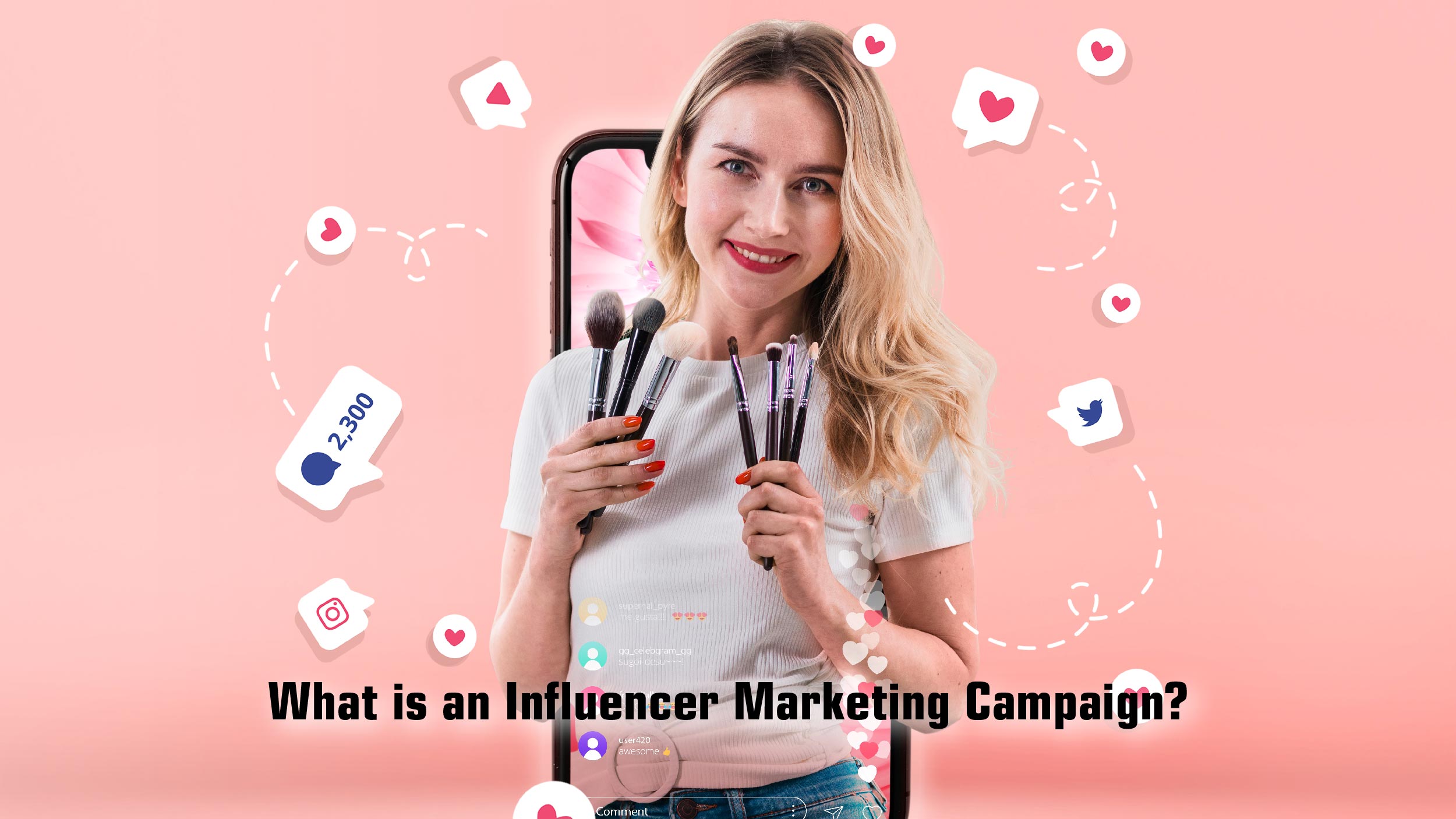Influencer marketing campaigns are the best and easiest way to covert leads. According to the Pulse Survey of 307 social marketers in the United States, influencer marketing has a significant impact on brands’ marketing efforts, including customer loyalty (87%), awareness (89%), and reputation (87%).
However, influencer marketing is not merely about selecting any creator, producing one-off content, and expecting benefits from their loyal following. 79% of marketers view influencer content as necessary for their customers’ experiences. Hence, brands must adopt strategic approaches to create campaigns that resonate effectively. Let’s jump in and learn everything about it.
What is an Influencer Marketing Campaign?

An influencer marketing campaign is a strategic collaboration between a brand and an influencer, where the influencer promotes the brand’s product or service to their followers. It is a type of social media marketing that leverages the influence and reach of popular individuals on platforms like Instagram, YouTube, or TikTok to drive brand awareness, engagement, and ultimately, revenue. Influencer marketing campaigns aim to create authentic and relatable content that resonates with the influencer’s audience, helping to build credibility and trust. By harnessing the power of influencers, brands can tap into their followers’ interests and preferences, effectively reaching a targeted audience and achieving their marketing goals.
Exploring Different Types of Influencer Marketing Campaigns
Influencer marketing campaigns come in various forms, leveraging the creator’s loyal following, trustworthiness, and authenticity.
Giveaways and Contests
Giveaways are popular, with 65% of marketers opting for this strategy. These campaigns offer free products or discounted services, fostering engagement and brand promotion. Influencers guide participants on how to enter, which could involve tasks like leaving comments, sharing posts, or completing social media challenges. Giveaways are particularly effective for micro-influencer campaigns due to their engaged audience.
Product Collaborations
Product collaborations involve 62% of marketers partnering with influencers. These collaborations can take diverse forms, utilizing the creator’s creativity and influence to design or produce specialized content or special edition products. Examples include event activations, unboxing videos, reviews, and pre-release content, creating anticipation and excitement around product launches.
Affiliate Influencer Campaigns and Sponsored Posts
More than half of marketers (57%) engage in influencer-led advertisements. This category encompasses affiliate marketing programs and sponsored posts.
In affiliate marketing, influencers promote products/services and earn a share of the profit from conversions made by their followers. They typically receive commissions through discount codes or referral links, making it popular in e-commerce. Affiliate influencers may also serve as brand ambassadors, consistently promoting a brand’s offerings.
Four Considerations for Launching an Influencer Marketing Campaign
When launching an influencer marketing campaign, it’s crucial to consider the following factors:
- Expertise: Assess whether the influencer’s content aligns with your campaign’s message and goals. Ensure that their expertise and reputation are suitable for representing your brand.
- Reach: Evaluate the influencer’s ability to engage your target audience effectively. Determine if they have a substantial presence on the relevant social media platforms where your audience is active.
- Demographic: Analyze whether the influencer’s followers match your company’s target demographic. Consider whether their audience demographics align with your buyer persona to maximize campaign effectiveness.
- Notoriety: Consider the influencer’s reputation and public perception. Opt for influencers with widespread popularity and positive sentiment to avoid backlash and ensure broad appeal among your potential customer base.
Key Elements for a Successful Influencer Campaign
Crafting a successful marketing campaign requires careful planning and execution. Here are key elements that contribute to the success of such campaigns:
Clear Messaging: Effective campaigns communicate a clear message that resonates with the target audience, guiding them through the customer journey.
Measurable Goals: Establishing SMART (Specific, Measurable, Achievable, Relevant, Time-bound) goals and metrics enables you to track the progress and success of your campaign.
Authenticity: Partnering with influencers who authentically align with your brand values and audience fosters trust and credibility, enhancing the campaign’s impact.
5 Best Influencer Marketing Campaigns
Gymshark
Gymshark excels in long-term influencer partnerships, collaborating with renowned trainers and athletes. Their pre-release campaigns, like the one featuring David Laid on Instagram, garner significant engagement and keep customers engaged.
Häagen-Dazs
Häagen-Dazs partners with influencers from diverse backgrounds to create sponsored TikToks, capturing the brand’s fun and family-friendly essence. An event activation featuring Leslie Grace drew 20.8 million views on TikTok.
Daniel Wellington
Daniel Wellington integrates influencer content seamlessly into its digital marketing aesthetic. Collaborative posts with nano-influencers, like Kelly Pettit, highlight product placement creatively and reinforce the brand’s elegance.
Coca-Cola
Coca-Cola launched its #SharetheMagic campaign on TikTok, spotlighting content creators of color like Khalid and Jalaiah Harmon. The campaign championed influencer diversity and continued to scout partners even after its conclusion.
Dunkin’
Dunkin’ partnered with TikTok star Charli D’Amelio, launching multiple drink collaborations and enlisting other top TikTokers for long-term partnerships. Their influencer outreach, exemplified by content creator Zachariah, consistently drives engagement and excitement among Gen Z audiences.
Final Takeaway
Effective influencer marketing campaigns resonate with your brand and can deliver impressive outcomes, fostering trust and authenticity through innovative means.
However, realizing these outcomes requires leveraging the appropriate tools to navigate diverse platforms and engage with a range of influencers. Influencer marketing tools play a pivotal role in identifying suitable collaboration opportunities and discovering the ideal influencers for your campaign.

